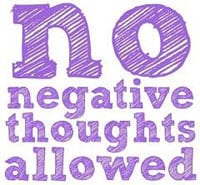 “When you judge yourself, you break your own heart.”
“When you judge yourself, you break your own heart.”
Unknown
This week, in working with one of my new clients, I noticed how negatively she spoke about herself. In a meeting with her supervisors and myself, she said, “I know I’m really stupid on this kind of stuff, but I’m going to really try and learn it”. Then she said, “I’m such an idiot when it comes to networking and I’m so bad at it that I really don’t even want to try”.
It was so painful and sad for us to hear her speak about herself this way. But I realized that I often hear my friends, family members and clients say things like this about themselves. And certainly I have been prone to it as well. You know, the negative self talk about our hair, weight, body image, etc.
The things we sometimes say to ourselves is appalling. In fact, if someone spoke to our children and said to them the things we said to ourselves-we would want to do bodily harm to that person!
We are very careful about what we say to others, but when it comes to ourselves we are not so conscious of the things we say. Negative self talk does not make things better. In fact, it impedes problem solving, distorts perceptions and can affect personal relationships.
Here are some types of irrational thinking that can form the basis for negative self-talk:
1-Generalizations. When we assume when one thing goes wrong for us, everything is wrong about us. Because we might have received some constructive feedback from our boss in an area of our job, doesn’t mean that our entire performance is a problem.
2-Ignoring the positive. When we reject, ignore, discount or minimize our positive contributions and just focus on the negative. “Oh, that positive piece of feedback doesn’t really matter because it was just a little project”.
3-Should statements. When we’re making “should” and “shouldn’t” statements, we are assuming there is only one right way to get things done.
4-Jumping to conclusions. “Oh, he didn’t call me last night, so he must be upset with me”
5-Blaming. Instead of looking for a solution to a problem or taking personal responsibility, we look to blame others.
The good news is it is possible to reverse negative self talk and replace it with positive talk. Listen to what you are saying to yourself. Is what you are saying to yourself true? Some psychologists believe that forcefully saying to yourself, “STOP” or “That isn’t me”, can help stop the string of negative self talk. Other ways is to replace the negative self-talk with more objective, positive thoughts and input such as:
- Listening to upbeat music
- Reading motivational books
- Being around positive people
- Recognize your strengths
- Keep a journal-note what kind of language and words you use-are they positive or negative?
- Use daily affirmations-these can be VERY effective
Remember, what we most often tell ourselves becomes a self-fulfilling prophecy.
Watch your thoughts, they become words.
Watch your words, they become actions.
Watch your actions, they become habits.
Watch your habits, they become your character.
Watch your character, it becomes your destiny.
Unknown
